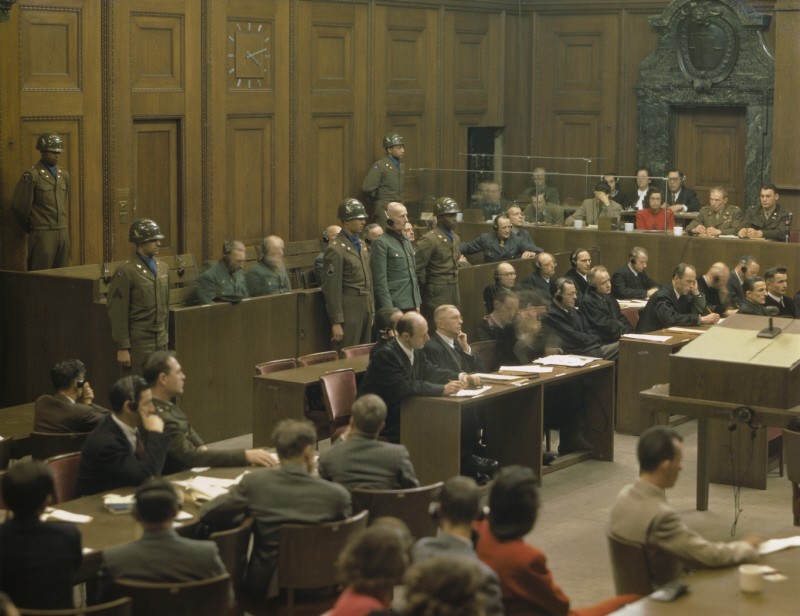
Subsequent Nuremberg Proceedings, Case #7, The Hostage Case
After World War II ended, the Allies established courts in each of their occupied zones in Germany to prosecute German officials for their role in the commission of war crimes, crimes against peace, and crimes against humanity. American military tribunals in Nuremberg, Germany, presided over 12 major proceedings against leading German industrialists, military figures, SS perpetrators, and others. Included among these Subsequent Nuremberg Trials was the Hostage Case.
United States v. Wilhelm List, et al.
The US Military Government for Germany created Military Tribunal V on June 28, 1947, to try the Hostage Case, whose 12 defendants had been indicted on 10 May. This was Case #7 of the Subsequent Nuremberg Proceedings.
The trial got its name from the issue it dealt with. The four counts charged the defendants with committing war crimes and crimes against humanity through:
- participation in the murder of hundreds of thousands of civilians of Greece, Yugoslavia, and Albania by troops of the German armed forces
- participation in the plundering and looting of public and private property, the destruction of cities, towns, and villages, and other acts of devastation in Norway, Greece, Yugoslavia, and Albania by troops of the German armed forces
- participation in the initiation and drafting of secret orders denying enemy troops quarter and denying them the rights of prisoners of war (POWs), and orders commanding that surrendered troops of countries at war with Germany be executed
- participation in the murder, torture, imprisonment in concentration camps, use for forced labor, and deportation for slave labor of civilians of Greece, Yugoslavia, and Albania by the German armed forces
After the arraignment on July 8, 1947, the trial opened on July 15, 1947. It closed on February 9, 1948, with only ten defendants. Franz Boehme had committed suicide between the indictment and the arraignment. The case of Maximilian von Weichs was discontinued because his physical disability prevented him from standing trial.
On February 19 the Tribunal returned its judgment, finding eight of the defendants guilty of at least one count, and acquitting the other two. It returned its sentences the same day, sending two of the guilty defendants to prison for life, and the other six to prison terms ranging from seven to twenty years.
Critical Thinking Questions
Beyond the verdicts, what impact can trials have?
How were various professions involved in implementing Nazi policies and ideology? What lessons can be considered for contemporary professionals?
How have some professional codes of conduct changed following the Holocaust?
Is it ever too late for accountability?

